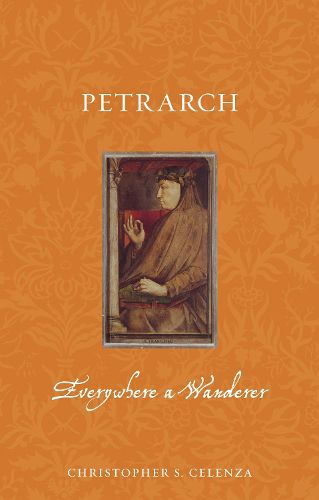Readings Newsletter
Become a Readings Member to make your shopping experience even easier.
Sign in or sign up for free!
You’re not far away from qualifying for FREE standard shipping within Australia
You’ve qualified for FREE standard shipping within Australia
The cart is loading…






Born in Tuscany in 1304, Italian poet Francesco Petrarca is widely considered one of the fathers of the modern Italian language. His writings inspired the Humanist movement and, subsequently, the Renaissance, but few figures are as complex or as misunderstood. He was a devotee of the ancient pagan Roman world and a devout Christian, a lover of friendship and sociability, yet at times an intensely private and almost misanthropic man. He believed life on earth was little more than a transitory pilgrimage, and took himself as his most important subject-matter.
Christopher S. Celenza provides the first general account of Petrarch’s life and work in English in over thirty years, and considers how his reputation and identity have changed over the centuries. He brings to light Petrarch’s unrequited love for his poetic muse, Laura, the experiences of his university years, the anti-institutional attitude he developed as he sought a path to modernity by looking toward antiquity, and his endless focus on himself.
Drawing on both Petrarch’s Italian and Latin writings, this is a revealing portrait of a paradoxical figure: a man of mystique, historical importance and endless fascination.
$9.00 standard shipping within Australia
FREE standard shipping within Australia for orders over $100.00
Express & International shipping calculated at checkout
Born in Tuscany in 1304, Italian poet Francesco Petrarca is widely considered one of the fathers of the modern Italian language. His writings inspired the Humanist movement and, subsequently, the Renaissance, but few figures are as complex or as misunderstood. He was a devotee of the ancient pagan Roman world and a devout Christian, a lover of friendship and sociability, yet at times an intensely private and almost misanthropic man. He believed life on earth was little more than a transitory pilgrimage, and took himself as his most important subject-matter.
Christopher S. Celenza provides the first general account of Petrarch’s life and work in English in over thirty years, and considers how his reputation and identity have changed over the centuries. He brings to light Petrarch’s unrequited love for his poetic muse, Laura, the experiences of his university years, the anti-institutional attitude he developed as he sought a path to modernity by looking toward antiquity, and his endless focus on himself.
Drawing on both Petrarch’s Italian and Latin writings, this is a revealing portrait of a paradoxical figure: a man of mystique, historical importance and endless fascination.